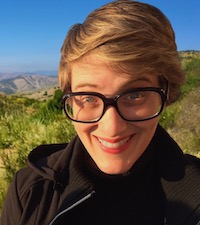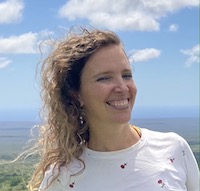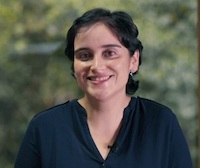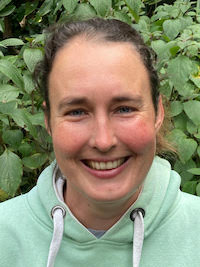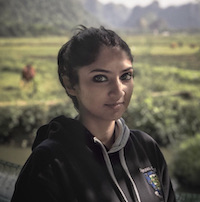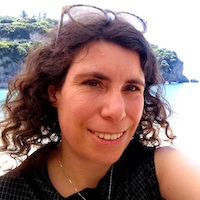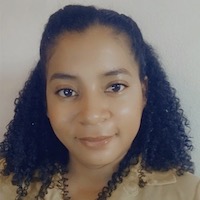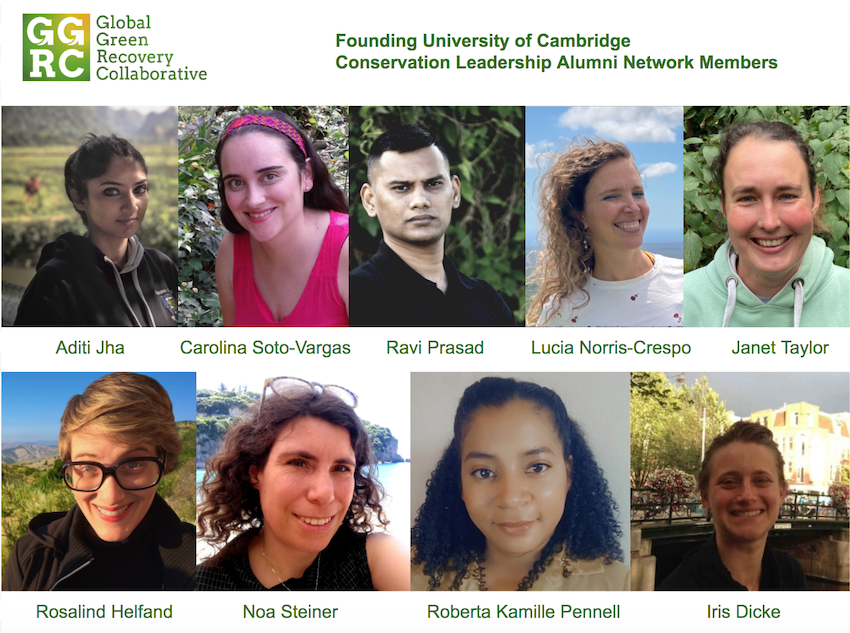
Project completed March 2024
Project Summary
Over the span of nearly two years, the Green Global Recovery Community (GGRC) played a crucial role in fostering global collaboration towards green recovery initiatives. Bringing together individuals and organisations from more than 50 countries, GGRC served as a catalyst for advocating green recovery policies, promoting sustainable practices, and facilitating crucial dialogues.
The GGRC community was characterised by its diversity and shared commitment to advancing environmental sustainability. Many members, including a significant portion of the leadership team, had completed the esteemed MPhil in Conservation Leadership programme at the University of Cambridge, forming a cohesive group with a strong dedication to a greener world.
Covering a broad spectrum of expertise, GGRC members contributed insights from various fields including climate change, pollution mitigation, wildlife ecology, conservation, sustainable development, and more. This interdisciplinary approach enabled GGRC to address environmental challenges comprehensively.
Strategic partnerships were forged with thirteen organisations, allowing GGRC to feature their green recovery initiatives on the platform and amplify collective impact. Virtual events organised by GGRC served as focal points for insightful discussions and transformative learning experiences, fostering collaboration and innovation within the community.
To facilitate engagement and knowledge-sharing, GGRC provided a range of platform tools and opportunities. These included features for submitting blog posts and events, facilitating member-to-member discussions, offering advisory tools, and hosting discussion forums. Leveraging these tools alongside events and partnerships, GGRC maximised its effectiveness in driving positive environmental change on a global scale.
Activities
Key activities of the project included:
Key activities included in the project:
1. Platform Launch and Growth: The GGRC launched its online platform, www.greenrecovery.world, in early 2022. Since then, the platform has experienced significant growth, with a vibrant community now comprising 69 members from over 50 countries.
2. Partnership Formation: GGRC formed partnerships with thirteen organisations to showcase their green recovery initiatives on the platform. These partnerships were strategically established, with over 50% of them originating from the UCCLAN network and past SCLA projects. The initiatives covered a wide geographic range, including countries such as Malawi, USA, Costa Rica, Belize, India, Asia-Pacific, Israel, and Australia. They encompassed activities such as sustainable and regenerative agriculture, biodiversity conservation, ecosystem restoration, marine biodiversity, climate security, and climate justice.
3. Virtual Event Series: In 2023, GGRC initiated a series of impactful virtual events aimed at engaging the community in discussions and transformative learning experiences. These events covered diverse topics, including green recovery strategies in response to global environmental crises, virtual tour and training sessions on platform usage, exploration of "New Economies" with a focus on ethical banking and degrowth, and comprehensive training on Climate Mobility and International Law co-hosted with ICAAD. The objectives of these events were to facilitate knowledge exchange, raise awareness, and inspire collective action towards a sustainable and just future. Recordings of these events are available for viewing, extending their impact beyond the live sessions.
Conclusions and recommendations
- Development and engagement of our global GGRC community;
- Team leadership for a global project;
- The technical aspects of managing website platform development.
1) Global community development is both essential and requires extensive time and core resources. Engagement requires strategic and constant communications and adaptive responsiveness to the needs of the community. With limited team resources, it’s important to tap strongly into existing networks. The UCCLAN network has thus been a crucial resource with insights, expertise and the capacity to contribute significantly to a global green recovery. It is essential to harness this network for driving transformative changes, both through the GGRC platform and other available channels.
2) Although collaboration is a powerful strategy to drive impact in the realm of conservation and sustainability, we’ve identified a critical knowledge gap in understanding the challenges that global collaboratives encounter in sustaining enduring partnerships and engagement. In response, GGRC conducted a global survey and one of our main findings from the survey is that to facilitate engagement, participants should be offered immediate intrinsic benefits. But this experience also points to the need for well resourced and adaptive team leadership to drive global success. With a mostly volunteer team, we were creative in managing time and needs, but this type of leadership needs further investigation and investment.
3) Technical development of a platform is a very specialised skill, even for those simply managing the process. It is also iterative and ongoing. It must be responsive to the needs of users. And as new needs are identified, maintaining the resources to respond to these is essential.
Impacts
The GGRC launched a global community that will continue to grow even as our team reflects and adapts to the needs of such diverse stakeholder engagement in a post-Covid 19 world. In doing so, the GGRC has contributed to increased awareness and collaboration on green recovery with 69 members from more than 50 countries, over half of whom are proud UCCLAN affiliates who are committed to sharing their motivation, resources and lessons learned on green recovery practices.
Outcomes and legacy
The GGRC has achieved significant outcomes and leaves behind a lasting legacy:
1. Development of a Forward-Looking Global Community: The GGRC has cultivated a forward-looking global community comprising thought leaders who actively engage in addressing intersectional conservation issues and challenges. This community collaborates to co-create solutions and fosters partnerships to drive meaningful change.
2. Innovative and Flexible Global Team Leadership Model: A key outcome of GGRC is the development of an innovative and flexible global team leadership model tailored to meet the project's unique needs. This model has been instrumental in navigating the challenges and opportunities of working with the UCCLAN community globally, ensuring effective collaboration and coordination.
3. Establishment of Relationships with Global Website Developers: Through the platform creation process, GGRC has established relationships with a global team of website developers. This collaboration bridges technological and communications innovation with the diverse spectrum of green recovery-related issues and needs, enhancing the platform's effectiveness in facilitating engagement and knowledge-sharing.
The legacy of GGRC is a growing community of thought leaders and platform developers committed to driving an expanding global network at the intersection of green recovery-related issues. As GGRC continues to convene and plan for the future, its legacy endures through ongoing partnerships, events, and the continued engagement of UCCLAN members and their projects worldwide. This legacy ensures that the momentum towards a sustainable future continues to thrive, with GGRC's contributions serving as a catalyst for lasting impact.
Follow up
Expanding on GGRC's foundation, efforts are underway to sustain and enhance partnerships, engagement, and leadership. One potential project involves establishing Global Communities of Practice (GCoP), offering immediate benefits like leadership development and knowledge sharing. In the short term, the focus is on developing and evaluating this initiative. The long-term vision is to extend its benefits globally, fostering collaboration and innovation in green recovery and sustainability. This ongoing work ensures GGRC's impact continues to grow towards a more sustainable future.
Project team
|
Ravi Prasad (2016-17) Monitoring, Reporting and Oversight Analyst for Resilience and Sustainable Development, UNDP Pacific Office I am co-leading the GGRC project. After graduating from the Conservation Leadership MPhil course, I volunteered as the regional coordinator for the UCCLAN Oceania region and am currently a council member. I have worked as the Field Team Lead for the World Mosquito Program from 2018 to 2020 where I managed a team of 20 multidisciplinary staff implementing ecosystem-based management of dengue, Zika and chikungunya in oceania. I’m currently working as the Monitoring, Reporting and Oversight Analyst for the Resilience and Sustainable Development (RSD) team of the UNDP Pacific Office where I am overseeing the Implementation and quality assurance of more than 50 programmes and projects in fifteen countries amounting to around USD 200 million. |
|
|
Rosalind Helfand (2018-19) Founder, PAJE Consulting Conservation Leadership MPhil in 2019. Based in Los Angeles, California, I’m the Founder of PAJE, a consultancy formed to collaborate, advise, and advocate at the nexus of social justice, wellbeing, and the restoration and recovery of biodiversity and our climate. I collaborate with communities, nonprofits, and governments to create and implement innovative, intersectional policies and programs. From campaigns to coalitions, my goal is to bring people together across issues, including environmental justice, protecting nature, and equity. I’ve contributed to global discussions on “collective crisis leadership” with UCCLAN, and researched local environmental leadership with Jacaranda School in Malawi. I am a UCCLAN delegate to the UN Convention on Biological Diversity (CBD) and also successfully led a coalition campaign to engage California as the first US subnational government observer to the CBD. |
|
|
Lucia Norris-Crespo (2016-17) Independent Consultant for Conservation and Sustainable Development I work on sustainability, conservation, and inclusive circular economy. I have advised local and national governments for sustainability and gender policy. I have worked at Sustainable Development and Climate Compatible Development projects since 2009. I was the WWF Galapagos Public Policies Officer and the first WWF Ecuador M&E Officer. I co-designed and implemented a current inclusive circular economy program to improve the well-being of grassroots recyclers connecting them to the private sector. Additionally, I was responsible for establishing a Jocotoco Foundation private reserve in Galapagos to protect the Galapagos Petrel, and I am a Jocotoco board member. I researched collective actions for resilience in Galapagos after Covid-19 and was part of the team that created the Galapagos Hub for Sustainability, Innovation and Resilience. I believe that the future is local; strengthening communities is vital to building resilience after Covid-19 and preparing for climate change shocks. (CL MPhil, 2017) |
|
|
Carolina Soto-Vargas (2016-17) Leader of the Participatory Science and Traditional Knowledge research group. Humboldt Institute, Colombia. I am a biologist and completed the MPhil in Conservation Leadership in 2017. Since 2017, I have worked for the Humboldt Institute in Colombia, leading the Participatory Science and Traditional Knowledge research group. I have worked on several conservation projects, including five years as a program manager for the Northern South America Jaguar Program; I also worked as the environmental advisor for a project that brokered communication between indigenous communities of the Colombian Amazon and the Colombian government. I speak four languages and believe in the importance of communication, co-creation, and integration of various systems of knowledge in conservation. I love working with local communities and trying to propose new approaches to engaging people in conservation through meaningful participation based on ethics, justice, and equity, especially in areas with challenging conditions regarding violence and inequality. |
|
|
Janet Taylor (2016-17) Scientist, KwaZulu-Natal Department of Agriculture and Rural Development, South Africa I am a vegetation ecologist from South Africa and currently work for the local government in the province of KwaZulu-Natal. I have more than 10 years of research experience and my main focuses are on using research outcomes to provide management recommendations to land users for the sustainable use and conservation of the natural resources within the province. My research interests include bush encroachment, plant-animal interactions and savanna ecology. I completed an MPhil in Conservation Leadership through the University of Cambridge in 2017, and also have been awarded an MSc in Grassland Science from the University of the Free State (SA). I have been an editor of a magazine for the Grassland Society of Southern Africa and enjoy working together as a team. |
|
|
Aditi Jha (2015-16) Public policy and sustainability specialist, World Bank I am a public policy and sustainability specialist who has developed and managed some of South Asia’s largest landscape conservation projects. At the World Bank, I work on framing India’s forest engagement strategy and on integrating environmental and social sustainability within multi-million dollar development projects in the agriculture, renewable energy, water supply and transport sectors. I’m also an advisor to UNDP on integrating sustainability within Ethiopia’s leather sector. Previously I held roles at IUCN, where I developed a course on hydrodiplomacy focused on the Himalayan region, and at UNESCO where I managed the World Heritage Biodiversity Programme. |
|
|
Iris Dicke (2013-14) Policy Advisor, Den Haag, Netherlands I currently work as a Policy Advisor for a political party in the Netherlands, which aims to develop policies based on an ecosystem’s perspective. In my role, I focus on strengthening biodiversity in urban and rural areas as well as how to structurally integrate biodiversity into policy and economy. Prior to this, I worked at an international development consultancy as well as a forestry consultancy, focusing on research and analysis of natural resources policy and land rights. As a member of the University of Cambridge, Conservation Leadership Alumni Network (UCCLAN), I helped coordinate and develop a statement for the post-2020 global biodiversity framework for the Convention of Biological Diversity’s – Open-ended Working Group. Now, I like to further the call for a green recovery. |
|
|
Noa Steiner (2016-17) PhD Candidate, Kiel University I am a current PhD candidate passionate about better understanding political decision making processes related to overfishing, and the ways in which political,environmental , economic, social and cognitive factors play a role, for enhancing long term conservation gains. My previous educational background includes an MPhil in Conservation Leadership from the University of Cambridge in the UK, BSc in Life Sciences, an MSc in Desert Studies from Ben Gurion University of the Negev, Israel. I am also familiar with the public sector, having worked in the Israeli Ministry of Environmental Protection, and civil society and having worked for international NGOs - BirdLife International and UNEP-WCMC. I am interested in learning and connecting interdisciplinary fields such as behavioral economics and cognitive psychology with nature conservation in order to better integrate insights within environmental policy, practice and research as enabling factors to support a rapid and effective transition into a more sustainable world. |
|
|
Roberta Kamille Pennell (2016-17) Technical Coordinator, Terrestrial, Wildlife Conservation Society I began my career in conservation at a local organisation in Southern Belize, which implemented people-focused conservation and evidence informed conservation in and around terrestrial protected areas in development, management and leadership positions. I now work for Wildlife Conservation Society (Belize) as the Terrestrial Coordinator, responsible for the implementation of the organisation's terrestrial components of Belize's conservation strategy, ensuring thriving wildlife, wild places and healthy and productive ecosystems. I completed the MPhil In Conservation Leadership from the University of Cambridge in 2017 and it broadened my perspective on conservation. I believe everyday’s a good day for learning, I am excited to learn and showcase the great work being done in green recovery! |
Website Development Team Leaders (integral team members who are not CL alumni)
| Dana Dellus |
Ux/ui designer, product designer |
| Iris Livneh |
UX Designer and Researcher Buildots |


